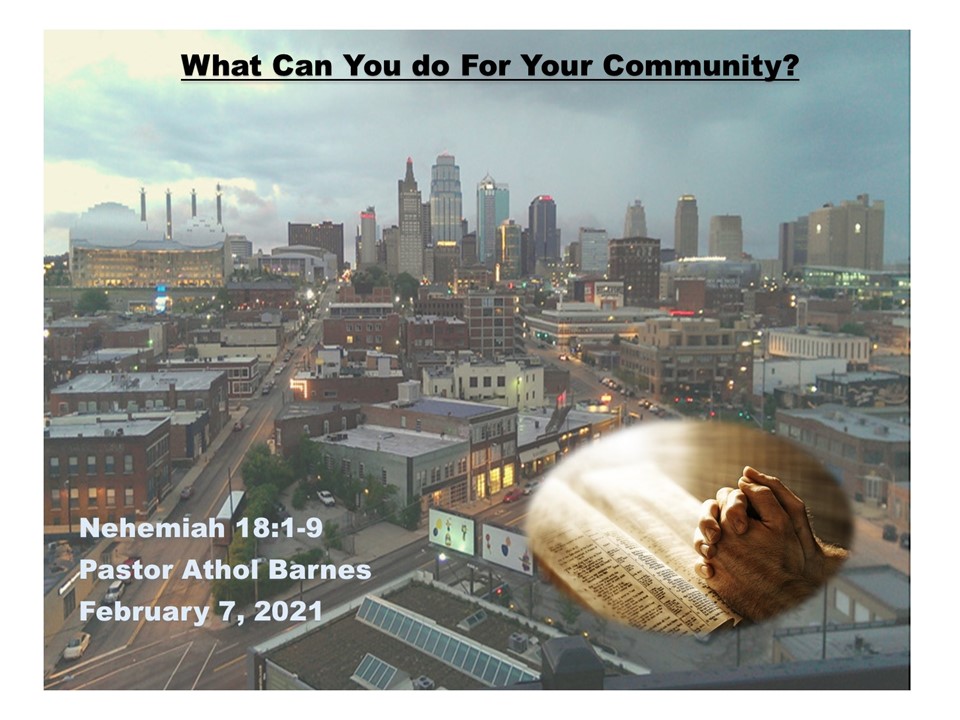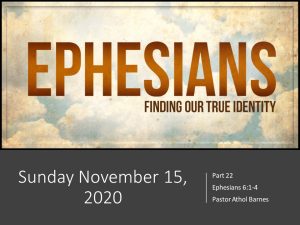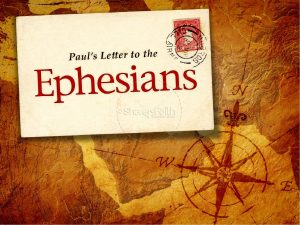
What is the greatest thing you can do for your neighborhood?
We and the global Church, have been praying faithfully for revival, but what if we were praying for revival for the wrong motives? What if our prayers were only focused on church growth?
The real motive for revival should be our community transformed by a move of the Holy Spirit. Praying for revival must be bigger than our church. We must focus on praying for our community.
In Nehemiah chapter 8, we read the account of a revival that took place in Jerusalem in the fifth century before Christ. Under the governorship of Nehemiah, the walls of the city had been rebuilt and now all the people have gathered at the Water gate and request that Ezra, the priest, reads the book of the law of Moses. These are the first five books of our Bible.
The water gate was an open public place that was large enough for all the people to gather. Scholars estimate that the crowd was around 50 000 people. As Ezra opened the scrolls and began reading from the Law of Moses, all the people stood in reverence and listened attentively. Ezra read aloud from daybreak until noon with 13 men assisting in the reading and 13 Levites mixing amongst the crowd to help with translation and understanding.
It is significant that this reading took place at the water gate. This place was chosen because the temple court was too small, but it is also significant that Gods Word was proclaimed in the marketplace, in the public square.
The Word of God is meant to be proclaimed in the public places, in the marketplace, and as we do that whole communities will be transformed. All too often the only place that the Word of God is proclaimed is in church buildings. We are doing such a disservice to our community by not proclaiming the Gospel message of Jesus Christ in our communities.
This public proclamation of the Law led to an immediate revival, the people were overcome with remorse and wept as Ezra expounded on the Law of God. Their sins were being exposed by the Holy Spirit and they repented.
What is revival? Firstly, it is not is a church meeting. Revival can start in a meeting, but a meeting itself is not revival. The dictionary states that revival is “restoration to life, consciousness, vigor. An awakening, in a church or community, of interest in and care for matters relating to personal religion”
Revival is personal. It starts when individuals repent of their sins and openly proclaim Jesus as Lord. The Israelites were overcome with grief as their sins were exposed. This is what happens when we get a glimpse of the Glory of God and of His awesome purity compared to the sin in our lives.
Revival results in changed lives as people live in holiness and walk-in evangelism and social justice. People are no longer satisfied with the entertainment of the world. Revival breaks the power of the charm of this world and gives us a heavenly perspective.
There have been some incredible revivals throughout history on every continent. All these revivals had one thing in common, an unusual experience with the presence of God and the overwhelming sense of remorse and repentance from the people (2 Corinthians 7:10).
Our churches, our city, our nation, needs revival. By God’s mercy, we will see a move of God that leads nations to repentance and an overwhelming sense of His Glory and majesty.
But every revival seems to have been relatively short lived. We just must look at the North Eastern United States today, it seems to be so dark and far from recognizing Jesus as Lord. But just a few hundred years ago, it was the center of the Great Awakening under the preaching of Jonathan Edwards and George Whitefield.
As we see in Nehemiah chapter 13, this occurred in Jerusalem as well. Less than one year after the revival, it seemed that the people had backslidden, and Nehemiah had to take drastic action to bring them back to observing the Sabbath and worshipping God.
Why did they backslide so quickly?
As we cry out to God for revival, how do we ensure that we do not falter in our faith, but rather continue to grow and experience more of the presence of the Holy Spirit in our lives?
Our Christian lives should be constantly growing, becoming more like Jesus. If you are not more like Jesus today, than you were a year ago, something is wrong, and you need to re-evaluate your walk with the Lord.
Many Christians go from conference to conference or meeting to meeting and experience amazing encounters with God, but between those experiences they barely live a life that represents a relationship with the living God. After every mountain top experience, we must learn to encounter God in the everyday, mundane life.
How do you grow in your walk with the Lord in the mundane?
Here are four Keys to a growing relationship with God.
- The first is reading and meditating on the Word of God. There is no substitute for prioritizing time immersed in the Bible. As we feed on God’s word, it teaches us, rebukes us, and trains us (2 Timothy 3:16-17). Are you allowing the Word of God to align your life with His?
- Secondly, repenting of our sins. Unconfessed sin will prevent you from experience revival and it will also ensure that you remain a spiritual infant. 1 John 1:9, is a promise from God!
- Thirdly, living in community. Today we are hearing a lot about community, but true community is rare. Even in our churches, community is a goal that is seldom achieved. Community is more than simply attending a weekly life group, community is living life together, encouraging and challenging each other.
- Finally, we pray. Personal prayer and corporate prayer must be the hallmark of every believer. Prayer is a discipline and a treasure that sadly only a few seem to hold dear.
Prayer is the greatest thing that you can do for your neighborhood.











